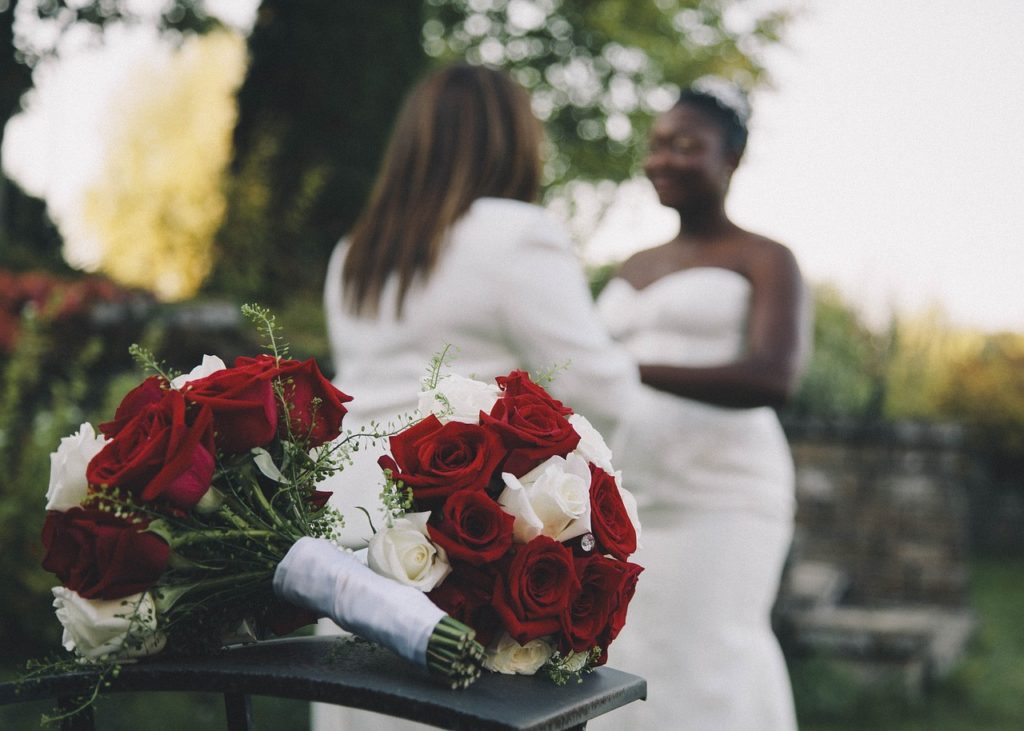Actress Anna Faris is divorcing her second husband, Chris Pratt, and is now wondering what the heck is the purpose of marriage anyway. In a recent conversation on Dax Shepard’s Armchair Expert podcast, Faris said:
I need to figure out what the purpose is. Is it safety for your children? Is it convention? Is it so other people respect your relationship more? For me, I’m just not quite sure where it fits, especially when it feels so easy to get married, and then the untangling — when the state gets involved. There is the importance of how other people then treat you as a married man than as a man with a girlfriend. I do think it is important how other people respect a relationship … I’m not saying it’s a good reason, but it is a small benefit of having that label of being married.”
Faris’ beliefs aren’t far off — for a hetero-
sexual white woman, that is. People understand marriage much more than cohabitation. Married people do indeed get a lot more respect. Some see marriage as an accomplishment. Others see it as a way to create a family, whether that means having kids or not. Many see marriage’s main purpose as a way to raise children together, although if couples aren’t on the same page about child-rearing, well, it’s problematic. And — hello — marriage is a legal contract that the state approves; it’s right there from the beginning, Anna, as soon as you get that marriage license!
But does marriage serve the same purpose for same-sex couples, who have only recently been able to legally marry everywhere in the United States and increasingly throughout the world?
Yes and no.
For one, same-sex couples have a much better understanding that marriage gives them access to numerous federal and state legal benefits and financial protections. That said, a few years after the Supreme Court’s decision, states and individuals are realizing that there have been shifts big and small that we have yet to fully have answers for.
Marriage isn’t as ‘greedy’
A new study looks at how marriage has impacted LGBQ people (no trans people because no one in the study identified as such, so more research is needed). The findings are revealing. Whereas marriage has been called a greedy institution because married hetero couples tend to focus more on each other and their kids, and less on friends and family, that did not happen for same-sex couples who tied the knot. They are about as engaged as ever although those who have kids — and far fewer married same-sex couples have kids than their hetero counterparts — have the same time constraints. Yet, because same-sex couples who married became more accepted by society at large, there was a decrease in a need for a LGBQ community — they no longer feel like they have to make an effort to seek out others who are “like them.”
That includes going to bars and clubs, which have historically been important in LGBTQ people’s life, especially gay men. But they didn’t decrease their attendance at bars and clubs because they were necessarily becoming more monogamous; it was more because they felt a certain pressure around the “cultural norms regarding marital monogamy and widely shared scripts about marital ‘maturity.'” That has particularly impacted older, married gay men, as there’s some judgment if they continue to frequent clubs and bars for quick and easy sex. In that way, marriage has been somewhat limiting to their sexual freedom.
As it turns out, marriage didn’t radically transform same-sex couples’ relationships. Because they were denied access to legal marriage for so long, many LGBQ people married for the first time at older ages than heterosexual couples, often after living together for many years, making their cohabiting and married relationships pretty similar. Most cohabiting hetero couples break up after around five years if they haven’t transitioned into marriage.
From exclusion to inclusion
Aware of marital norms, however, LGBQ people “altered their behavior accordingly,” which is why some within the LGBTQ community have been critical of same-sex marriage — because the institution itself is a one-size-fits-all model, it just increases homonormativity.
The study notes that the transition from being excluded from institution of marriage for so long to being included is much more important to LGBQ people than the transition from being unmarried to married. Still, this may change: same-sex couples will likely be marrying at younger ages from here on as their hetero counterparts, the study suggests, and that may “make marriage a more significant relationship transition demanding greater time, energy and commitment.” And they may find themselves struggling with the same issues hetero couples struggle with.
So, Anna Faris, the purpose of marriage seems to matter only if you can’t have it. Now that everyone can, perhaps we need to consider whether we’re ready to create a society that accepts, includes and validates all ways of living — coupled or not — and doesn’t privilege people solely for their romantic and sexual life.
Want to individualize your marriage? (Of course you do!) Then read The New I Do: Reshaping Marriage for Skeptics, Realists and Rebels (Seal Press). You can support your local indie bookstore or order it on Amazon.


















Sometimes marriage can be suffocating and too restrictive. The obligation to stay in one is just more coercive pressure than many people need or want. I find myself leaning more toward the “whatever works” theory of relationships and removing the stigmas surrounding those who don’t choose not to marry.